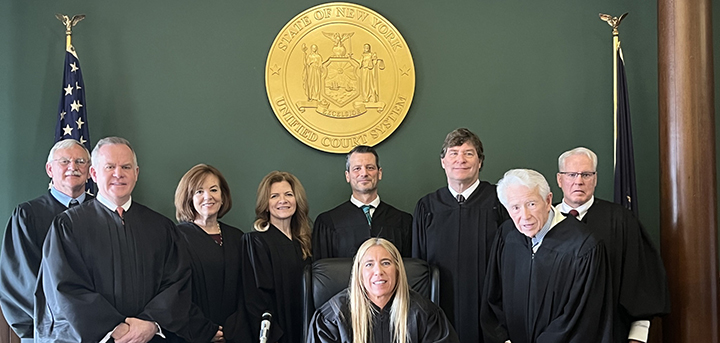Tilting At Windmills: Crying At The Movies
Published:
September 30th, 2022
By:
Shelly Reuben

I have been crying all week.
It started when I was searching through movie options on TV, and suddenly came upon one that I had not seen in years. Produced in 1939, it was directed by William Wyler, starred Laurence Olivier and Merle Oberon, and was based a novel written in 1847 by Emily Brontë.
I hadn’t seen it in many years, believing that the last time I’d watched the movie, it had packed such an emotional wallop, to do so again would be anti-climactic. How wrong I was.
Over the image of a desolate cottage on a lonely moor, with a magnificent Alfred Newman score thundering in the background, my screen filled with the words: SAMUEL GOLDWYN PRESENTS “WUTHERING HEIGHTS” ... and watching it was like falling in love for the very first time.
Surely, never again, as the bitter, passionate Heathcliff, was Laurence Olivier so masculine. So handsome. Surely, never again, as wild, vain, and equally passionate Cathy, was Merle Oberon so terrifyingly imperious. So heartbreakingly vulnerable.
They love. They part. Cathy worships Heathcliff. Cathy rejects him. He runs off to seek his fortune, and she turns for affection to wealthy but arrogant Edgar, about whom Heathcliff had proclaimed, “If he loved with all the powers of his puny being, he couldn’t love as much in eighty years as I could in a day.”
Two years later, Heathcliff comes back, a wealthy man, to claim Cathy. But she has married Edgar. In her anguish at his return – his heart filled with jealousy and vengeance – Cathy loses the will to live. As she dies in his arms, Heathcliff rages:
“Catherine Earnshaw, may you not rest as long as I am living; you said I killed you – haunt me, then...Be with me always – take any form – drive me mad! Only do not leave me in this abyss, where I cannot find you! Oh, God! It is unutterable! I cannot live without my life! I cannot live without my soul!”
Cathy dies. And I cry. I cry. I cry.
In contemporary movies, love is not eternal; honor is scorned; and eyes do not linger, shine, and convey unspoken ardors. If I wanted to cry over lost love, desperate longings, or just plain old courage, I clearly had to seek out films made before I was born. I made a short list of ones I had seen long ago, and hoped that watching them again would move me to tears, so that I could convey them to you.
First on my list was Casablanca, produced by Warner Brothers less than a year after Pearl Harbor, with music by Max Steiner, who wrote the magnificent score for Gone with the Wind. It starred Humphrey Bogart (Rick), Ingrid Bergman (Ilsa), Paul Henreid (Laszlo), and Claude Rains (Captain Renault).
Mere weeks before the Germans invade Paris, American expatriate Rick, with a long history fighting against oppression, falls in love with Ilsa, who is secretive about her past. Just as they are about to flee the city together, Ilsa finds out that her husband Victor Laszlo, leader of the Czech resistance, did not die in a concentration camp. Knowing that she must return to him, and fearful that Rick will stay behind to protect them, Ilsa sends Rick away without explanation. He believes that she has heartlessly abandoned him.
Fast forward a few years to an embittered Rick running a café in Casablanca. At the nadir of his cynicism, Ilsa walks in. Their eyes meet (the way eyes do in old movies). Rick tries to make himself hate her, but can’t. And she still loves him. When Rick meets Ilsa’s hero husband, he cannot hate Laszlo, either.
And here comes the scene that makes me cry. It is not when Sam plays “As Time Goes By” on the piano. It is not when Rick tells Ilsa to leave him again because “We’ll always have Paris,” and that if she stays, she will regret it, “Maybe not today, maybe not tomorrow, but soon and for the rest of your life." And it’s not when Captain Renault dumps a bottle of Vichy water in the wastebasket and orders his men to “round up the usual suspects.”
It is when the Nazi Major Strasser, drinking with his soldiers at Rick’s Café, rouses them to sing a belligerent German war song. Indignantly, Laszlo orders Rick’s musicians to play the French National Anthem. Rick gives them a nod to go ahead; all of the patrons in the café rise up as one, and with tears in their eyes, defiantly sing La Marseillaise. “Murder us if you must,” they seem to be saying. “But WE ARE FRENCH.”
Second on my list of three-Kleenex movies is The Inn of the Sixth Happiness, produced by Twentieth Century Fox, and starring (again) Ingrid Bergman, this time as Gladys Aylward a British domestic who believes that God wants her to go to China to be a missionary. It also stars Robert Donat as the local Mandarin and Curt Jurgens as the Eurasian Colonel Lin, with whom Gladys falls in love:
After she bullies her way through Siberia into China, Gladys settles into a small village where, other than converting people to Christianity, teaching children to read, and rescuing 100 children from an invading army, she becomes ‘Foot Inspector” at the Mandarin’s invitation. This job requires her to travel by horseback to remote regions and teach peasants that it is against the law to continue to bind women’s feet.
In the course of doing this, Gladys and the Mandarin develop a close friendship, which ends the day that the Japanese invade the village. The Mandarin, knowing that he must flee to the mountains, tells Gladys that, as a sign of respect and gratitude for all she has done, he is going to become a Christian. As he walks out the door, undoubtedly to his death, he says to her “We shall not see each other again, I think. Farewell.” And I burst into tears.
This last scene is all the more poignant because in real life, Robert Donat, who played the Mandarin, died before The Inn of the Sixth Happiness was released.
Earlier in his career, Donat starred with Greer Garson as Kathy and Paul Henreid as Max (Laszlo in Casablanca) in MGM’s Good Bye Mr. Chips. It was produced and directed by Sam Wood in 1939 – the same year as Wuthering Heights – and Donat won an Oscar for his performance, contending against Laurence Olivier (Heathcliff), Clark Gable (Rhett Butler), Mickey Rooney, and James Stewart.
This movie, another emotional marvel, was about an insecure school master who, after years of teaching, accompanies his colleague, Max, on a walking tour through Austria. One day while hiking over a mountain, he is stranded by fog. While attempting to rescue Kathy, another hiker who appears to be lost in the fog, they chat; she tells him that she is a suffragette, and he shyly tells her about his career as a schoolmaster.
They fall in love. They marry. And Kathy turns him from a borderline curmudgeon into a warm, attentive, friendly man, which affects his approach to his students, and makes him a beloved teacher as well.
What next? Kathy dies in childbirth. Mr. Chips continues to teach, and continues to love and be loved by his students. He ages. War is declared, and many of his “boys” die.
Eventually, Mr. Chips becomes headmaster of his school. He ages more. He gives more. He smiles more. Until finally, on his deathbed, with the new headmaster at his side, he says, “I thought I heard you saying it was a pity...pity I never had any children. But you’re wrong. I have. Thousands of them. Thousands of them...and all boys.”
I shed more glorious tears.
Fourth on my list of weepy movies was A Tree Grows in Brooklyn based on the book by Betty Smith. This was also produced by Twentieth Century Fox, and directed by Elia Kazan. Music (as with Wuthering Heights) was by Alfred Newman. The movie starred Dorothy McGuire as hardworking Katie Nolan; James Dunn as lovable but flawed Johnny Nolan; Joan Blondell as much-married, sexy, and cheerful Aunt Sissy; and Peggy Ann Garner as starry-eyed Francie Nolan, who loves books almost as much as she loves her father, and spends many hours on the fire escape of their apartment, dreaming about the future, and watching their beloved tenement tree grow.
The scene in this movie that touched me most deeply occurs after Johnny Nolan dies of pneumonia and alcoholism, and Francie is so inconsolable, she cannot cry. Minutes before she graduates from grammar school, Aunt Sissy insists that Francie return to her desk, which she does not want to do, because she’s certain she will be the only girl in her class whose family is too poor to give her flowers. Much to her shock, however, she sees a bouquet of roses on her desk with a note from her dead father wishing her a happy graduation. Aunt Sissy explains that Johnny had given her two dollars a year ago, to make sure that Francie received flowers at her graduation from Papa.
At which point both Francie and I burst into tears.
Fifth on my list was The Best Years of Our Life, a post-World War II movie about three returning veterans and their difficulties readjusting to civilian life. Produced by Samuel Goldwyn, and directed by William Wyler (the same team from Wuthering Heights), it starred Dana Andrews as Fred; Harold Russell as Homer; Fredric March as Al; Myrna Loy as Al’s wife Milly; and Teresa Wright as Milly’s and Al’s daughter, Peggy.
This is a movie I wish all returning veterans and their families were required to watch, to remind them that the grief and hardships they face were endured by previous generations as well.
Fred, formerly a bombardier captain in the Air Force, returns to his hometown experiencing nightmares and flashbacks about combat. He also has to face the indignity to working as a soda jerk, and an unfaithful wife.
Al drinks too much, despises the complacency of the bank where he works, and rebels against its reluctance to give veterans loans without collateral.
And Homer, who lost two arms after his ship was bombed, rejects his family, friends, and fiancée, because he fears that they pity him, and he believes they are always staring at the mechanical hooks he has instead of hands.
Peggy (Al’s daughter) falls in love with Fred, and when her parents warn her against getting involved with a married man, she accuses them of not understanding real love, because life has always been so easy for them. To which, addressing each other, Milly and Al respond, “How many times have I told you I hated you and believed it in my heart? How many times have you said you were sick and tired of me; that we were all washed up? How many times have we had to fall in love all over again?”
The scene that brings me to tears though, is the happy ending. Homer realizes that his girlfriend really loves him ... Fred’s faithless wife divorces him ... and Fred and Peggy are finally free to marry.
“You know what it’ll be, don’t you Peggy? It may take us years to get anywhere. We’ll have no money, no decent place to life. We’ll have to work – get kicked around.”
In response to which Peggy smiles at him joyfully, they kiss, her hat falls off her head, tears are shed (mine. Not theirs), and the scene fades to black.
The last movie on my quest brings back happy memories because, not long after I got married, I decided it would be fun to make my husband cry. So I took Charlie by the hand, led him to our TV room, and made him watch The Pride of the Yankees.
Like Goodbye Mr. Chips, this film was produced by Samuel Goldwyn and directed by Sam Wood. It starred Gary Cooper as Lou Gehrig; Teresa Wright as his wife Eleanor, and Babe Ruth as himself. It is the story of Lou Gehrig’s devotion to the Yankees, his decency, loyalty, and love of baseball. Nicknamed “The Iron Horse” because he played 2,130 consecutive games, he is diagnosed with ALS – a fatal neuromuscular disorder which later became known as “Lou Gehrig’s disease” – at the peak of his career,
After illness forces him to retire, Gehrig is honored at Yankee Stadium by teammates and fans. His speech, which would bring tears to anyone’s eyes, has become a classic example of dignity, humility, and valor:
“I have been given fame and undeserved praise by the guys up there behind the wire in the press box – my friends, the sports writers. I have worked under the two greatest managers of all time ... I have a mother and father who fought to give me health and a solid background in my youth. I have a wife, a companion for life who has shown me more courage than I ever knew. People all say that I’ve had a bad break. But today – today, I consider myself the luckiest man on the face of the earth.”
And that’s it.
In life, there are many things to separate us from our fellow man and put bitterness in our hearts.
That is not good.
Great movies, however, bring the heroism, dreams, triumphs, and sorrows of others into our lives, to touch our souls and remind us that we are human.
Under the best circumstances, and in the best possible way ... they can also bring us to tears.
Copyright © Shelly Reuben, 2022. Shelly Reuben’s books have been nominated for Edgar, Prometheus, and Falcon awards. For more about her writing, visit www.shellyreuben.com
Author: Shelly Reuben - More From This Author
Comments





